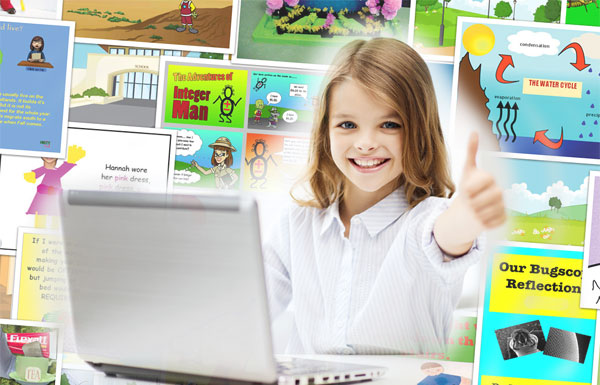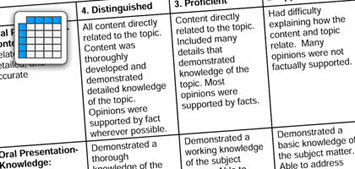
The power of an online and on-demand student platform

Culturally responsive practices encourage us to "create learning experiences that have the 'Power of Doing'" (Gholdy Mohammad, 2020). This theory is lofty and positive, but how do educators implement these needed principles in a day-to-day curriculum of project? How can learning tasks build literacy, reflect our focused topics, themes, and research, as well as highlight student voice, identity, and critical choice?
The Junior Ambassadors' afterschool club at Ditmas IS 62 is designed for seventh- and eighth-grade students who have an interest in world affairs and being a global citizen. While exploring the United Nations Sustainable Development Goals (SDGs), this year's junior ambassadors voted to focus on:
As a result of their subsequent work, each of the junior ambassadors had a particular personal and international take on these two global goals.
At Ditmas IS 62, Social Worker Keitha Rhoden, Guidance Counselor Michelle Myers and Writing Institute Director Dr. Rose Reissman wanted to give club members a chance to share their reflections as student leaders. Specifically, they wanted them to weigh in with the almost 1000 students at Ditmas IS 62 at an upcoming Culture Day. How could we assure that during a busy school-wide celebration of culture, these critical comments and interactions by the student leaders would be heard and reacted to by students?

Podcasting provided an immediate and accessible possibility to enable the "power of doing" with each comment, discussion, and reaction from the audience.
Marissa Silverman, an ELA teacher who had successfully done podcasts with her own classes, stepped up graciously to produce and record a podcast which would stream into all classrooms and be available on PCSS leadership podium. While the students had experience speaking to class groups and to larger audiences, they were still self-conscious about being recorded for peers to hear.
Ms. Silverman was given a list of questions about student's individual cultural and personal research on hunger and poverty to merge into a flowing podcast. She introduced the requisite sound checks and process and assured students that verbal blunders and long pauses could be edited out. Ms. Silverman also worked to relax the novice podcasters so they could authentically discuss both their experiences as Junior Ambassadors and their mission going forward as young leaders.

After editing and inserting transitions recorded by one of the student leaders, the final podcast was shared with the entire school, class-by-class. Podcasting allowed students to literally create a peer SDG mission awareness experience for their peers at Ditmas and Starr leaders in the Pennsylvania Council for Social Studies STARR leaders group.
How did the experienced IS 62 Middle School Junior Ambassadors react to their novice use of the podcast format to make their leadership mission happen?
Humayra
"Before doing the podcast, I was pretty excited. I had never been in a podcast before. But the reason I was excited, was also the reason I was nervous. I felt self- conscious about the sound of my own voice. Yet listening to myself speak was also kind of fun. Student leadership has many sides to it. I also noticed that many on my Junior Ambassador team were also self-conscious about the sound of their own voices. This experience, though scary at the beginning, ended with a nice product."
Fiza
"At first the idea of doing a podcast honestly made me very nervous. But as we thought about what we each had to say, I found myself getting excited. The podcast meant that my personal voice would be heard by the students. I listened to how my voice sounded with a mix of humor and a sense that how it sounded, did not matter. What mattered was what I said. I came to feel that what I said was important and our audience cared about each of our statements and discussion on hunger and poverty. The notion that the podcast audience would hear and understand what I said was terrific. I felt proud of the finished podcast."
Abdullah
"I was immediately excited by the concept of the podcast. I have already listened to celebrity podcasts, so I associated it with those. However, I was nervous because my voice on a mic sounds completely different from my speaking voice. I so worried that I would mess up the podcast as it was recorded and ruin it for everyone, but as a student leader, I took a deep breath and went for my shot to speak my mission. Listening to the podcast, a week later, I was proud and happy we all communicated."
Arifin
"I was honestly scared and nervous. But when I joined the Junior Ambassador Program, I got practice in public speaking. I had lost my confidence in public speaking because of the lockdown and of the lack of public anything, including making videos or podcasts. Yet as we recorded the podcast, it got easier because I knew the questions beforehand and I had my opinions and perspectives on the issues to share. I forgot about the process of recording. I just went with the flow of our discussion and feel that the podcast came out really well."
The published podcast provided a podium for the UN Junior Ambassadors to exercise their ambassadorial powers without leaving the building, while reaching their peers and invited listeners in Pennsylvania, across the nation, and globally. As teachers seek to educate for content and historically responsive cultural literacy, the solution is only a simple podcast away.
Muhammad, Gholdy (2020). Cultivating Genius. New York. Scholastic.
Creative Educator can help you bring project-based learning to your school.
Learn More8 first projects to get students using technology
Creative, digital book reviews
Fun and powerful ideas with animated characters

Wixie
Share your ideas, imagination, and understanding through writing, art, voice, and video.

Rubric Maker
Create custom rubrics for your classroom.

Pics4Learning
A curated, copyright-friendly image library that is safe and free for education.

Wriddle
Write, record, and illustrate a sentence.

Get creative classroom ideas delivered straight to your inbox once a month.
Topics